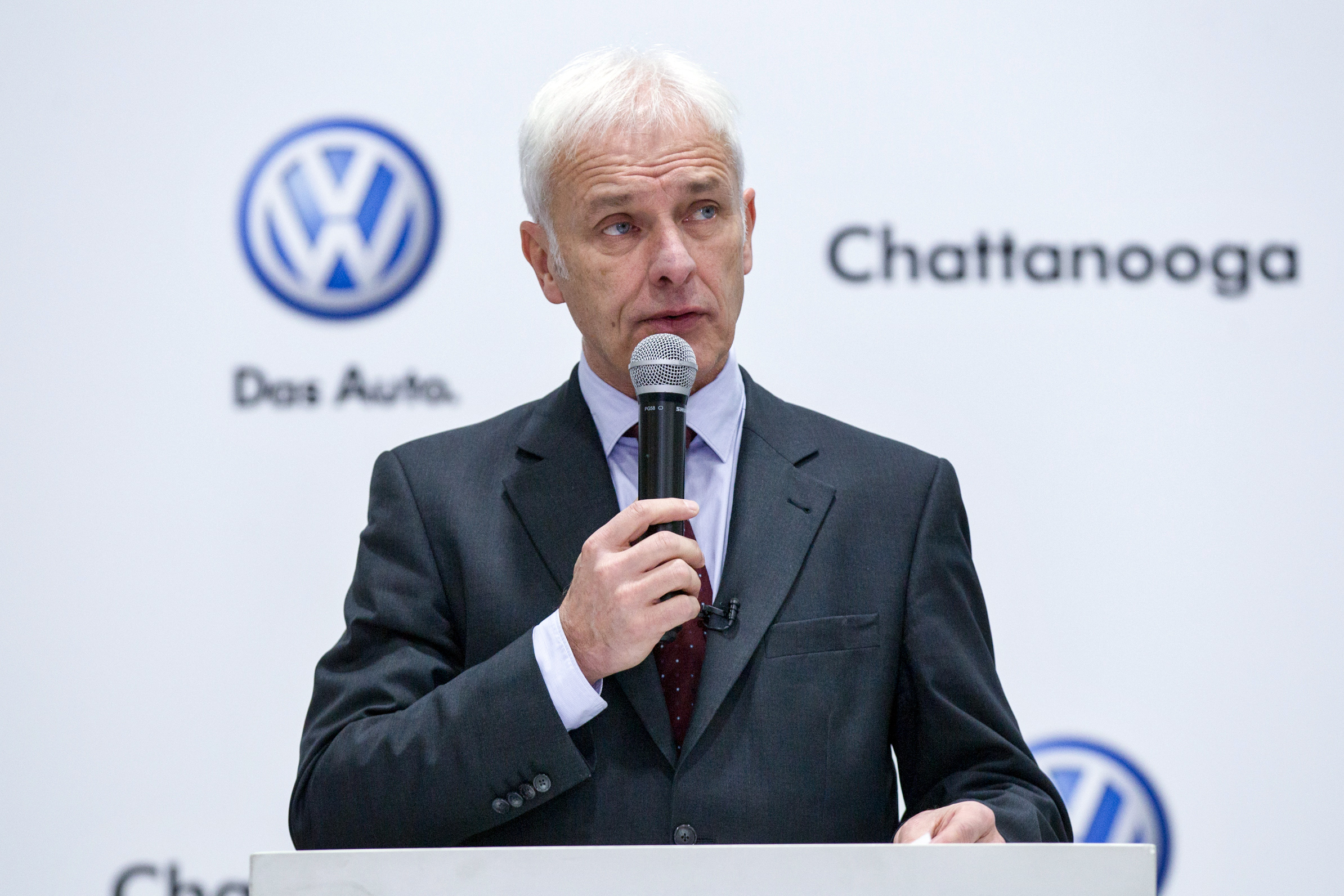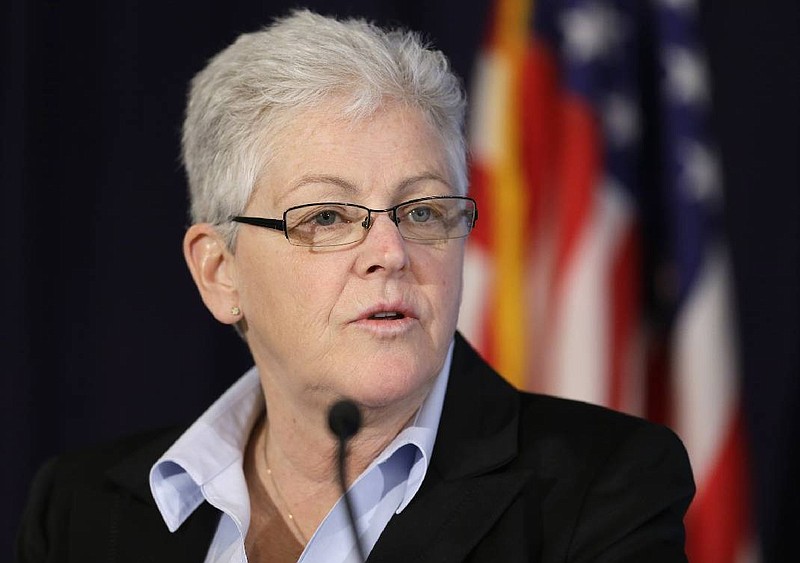Under pressure to devise a fix for its polluting diesel cars, the chief executive of Volkswagen, Matthias Mueller, met for the first time with a senior government official in the United States to discuss the crisis that has engulfed the German carmaker since September.
Mueller, who attended the North American International Auto Show this week, met with Gina McCarthy, the administrator of the Environmental Protection Agency, on Wednesday in Washington. The federal agency and California air regulators are investigating how VW had installed cheat devices to beat emissions tests on 600,000 diesel cars sold in the United States.
The EPA declined to comment on the discussions. After the meeting, which was set up at VW's request, the agency released a short statement that read, in full: "We appreciated the conversation with Volkswagen. We will continue to work toward a solution."
 Volkswagen CEO Matthias Mueller speaks to workers at the German automaker’s lone U.S. plant in Chattanooga, Tenn., Thursday, Jan. 14, 2016. Mueller said he had agreed with federal environmental regulators not to publicly discuss Volkswagen’s next steps in addressing its emissions cheating scandal. Volkswagen was forced to admit last year that about 600,000 vehicles nationwide were sold with illegal software designed to trick government emissions tests. (AP Photo/Erik Schelzig)
Volkswagen CEO Matthias Mueller speaks to workers at the German automaker’s lone U.S. plant in Chattanooga, Tenn., Thursday, Jan. 14, 2016. Mueller said he had agreed with federal environmental regulators not to publicly discuss Volkswagen’s next steps in addressing its emissions cheating scandal. Volkswagen was forced to admit last year that about 600,000 vehicles nationwide were sold with illegal software designed to trick government emissions tests. (AP Photo/Erik Schelzig) The visit was meant to help VW smooth relations with the authorities in the United States who have grown frustrated at the delays in resolving the issue. VW has repeatedly apologized for the problem, which caused Mueller's predecessor, Martin Winterkorn, to lose his job. However, in an interview with NPR in Detroit before the meeting in Washington, Mueller appeared to stumble when asked whether the company had lied to regulators. He described the issue as "a technical problem" not an "ethical" one.
"We didn't lie," he said. "We didn't understand the question first and then we worked since 2014 to solve the problem."
"We made a default, we had not the right interpretation of the American law," he also said.
NPR said that VW subsequently requested a follow-up interview in which Mueller tried to back away from his earlier statement to explain what happened. "One reason could be a misunderstanding," he said. "One reason could be that people and employees did their work not in the right way. There are different possible reasons for that."
The company later issued a statement acknowledging that Mueller's choice of words in English "may have resulted in some confusion."
"We have been open and transparent about not just the mistakes that were made, but also about the culture that allowed for such lapses in judgment," the company said. "We are working hard to make things right, renew our culture and make a better Volkswagen."
The problem with the defeat device could involve more than 11 million cars worldwide. The company is under growing pressure to assuage car owners as well as regulators in the United States because of the number of lawsuits, fines and penalties it could face.
Last week, the Justice Department, which had opened its own investigation, filed a civil complaint against the company, accusing it of exceeding EPA air quality standards and violating the Clean Air Act. VW also faces lawsuits from customers.
Regulators have become increasingly impatient with the company, which has struggled to come up with ways to fix the cars. On Tuesday, regulators in California formally rejected an initial proposal put forth by Volkswagen, saying it was deficient and fell short of satisfying legal requirements to certify VW diesel cars again.
Jeannine Ginivan, a spokeswoman for VW, said the company had "constructive discussions" with California's Air Resources Board to resolve the emissions issue. The company, she said, will continue to fully cooperate with the EPA and California state regulators.

